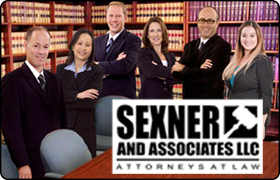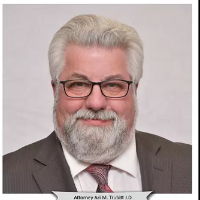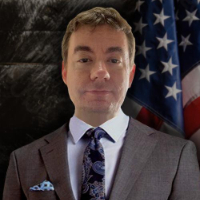Evergreen Park Misdemeanor Lawyers, Illinois
Sponsored Law Firm
-
 x
x

Click For More Info:
-
Sexner & Associates LLC
Serving Chicago and all of Ilinois» view mapPersonal Injury, Medical Malpractice, Workers' Comp Millions of Dollars Awarded
Since 1990, our experienced legal team has helped thousands of families and collected millions of dollars on their behalf. Call now for free information.
800-854-5581
Sponsored Lawyers
1-9 of 9 matches
Criminal, Misdemeanor, Felony, DUI-DWI, Expungement
We specialize in bringing the law to your corner. We are dedicated to understanding what results you want and to helping you understand what actions we can take on your behalf. We will work with you every step of the way to make sure that you understand the choices you are making and feel empowered to make them.
(more)Criminal, DUI-DWI, Expungement, Misdemeanor, Accident & Injury
Since 1990, the legal team at Mitchell S. Sexner & Associates LLC has helped over 10,000 clients in cases involving criminal, traffic, personal injury, medical malpractice, and workers compensation matters. Mitchell Sexner is a former assistant States Attorney and every member of the legal team is very experienced and knowledgeable. Criminal and traffic fees are offered on a flat fee basis with payment plans where necessary. Medical malpractice, personal injury and workers' compensation matters are handled on a contingency basis with no money down and no fees charged unless you win. Many millions of dollars have been collected for our clients over the years. Call today for free information about how we can help you.
(more)Criminal, DUI-DWI, Expungement, Misdemeanor
Ari Trubitt is a Senior Associate Attorney at Sexner & Associates LLC and a life-long Chicago area resident who graduated from the University of Illinois and the John Marshall School of Law. He began his legal career as an intern at the Cook County State’s Attorney’s Office and soon thereafter moved to a law firm from which he began practicing all manner of criminal defense from minor traffic offenses and misdemeanor cases up to first-degree murder. Within his first two years of practice, he had already been sworn into the Federal Bar for the Northern District of Illinois, the Eastern District of Wisconsin, and the Seventh Circuit Court of Appeals; a remarkable accomplishment. He has represented clients on felony charges not only in Illinois, but in Wisconsin, Michigan, Indiana, Ohio, and California, as well as on federal cases in the Central and Southern Districts of Illinois and the state of Nebraska. He brings a lifetime of criminal and traffic law experience to the table. Over the following period of nearly 15 years, Attorney Trubitt then exclusively represented union members for all their traffic and criminal offenses, including a high volume of DUI, domestic battery and assault cases. During this time, he also appeared on behalf of hundreds of clients during deportation (removal) hearings and other clients in their efforts to obtain lawful citizenship status, using immigration knowledge that he still employs on a daily basis to assist non-citizens charged with criminal and traffic matters. A past member of the Illinois State Bar Association’s “Traffic Law and Courts Committee”, he has lectured at legal seminars and authored articles related to DUI law and the like. He has served the public as a member of the Judicial Evaluation Committee and as chairperson of those committees whose job it is to evaluate candidates for judicial positions and to rate them. At Sexner & Associates LLC, Mr. Trubitt is also the Senior Attorney in charge of Secretary of State Hearings. In this capacity, he represents clients charged with suspended and revoked licenses before the State of Illinois. His vast experience in this area has earned him a highly successful record of winning back driving privileges for hundreds of drivers.
(more)Criminal, DUI-DWI, Felony, Misdemeanor, White Collar Crime
Our offices concentrate on practicing criminal defense for individuals facing charges of felonies and misdemeanors at both the state and federal levels, as well as those who are under investigation for state and federal crimes. We understand that being accused of a crime or being under investigation can be very distressing and that's why Attorney James F. DiQuattro, with his 10 years of experience, is dedicated to providing criminal defense services specifically for those individuals. Mr. DiQuattro has a track record of successfully securing acquittals and dismissals in various cases, including DUI, sex crimes, and violent crimes. He has also obtained favorable resolutions in cases that prevented imprisonment, felony or misdemeanor convictions, and other consequences such as losing a driver's license or offender registration requirements. With a holistic approach, Mr. DiQuattro strives to achieve the best possible outcome for his clients. To schedule your initial consultation with the Chicago Criminal Defense Attorney, please submit a form online or call 312-627-9482.
(more)



 Our Success
Our Success  Awards
Awards Español
Español




